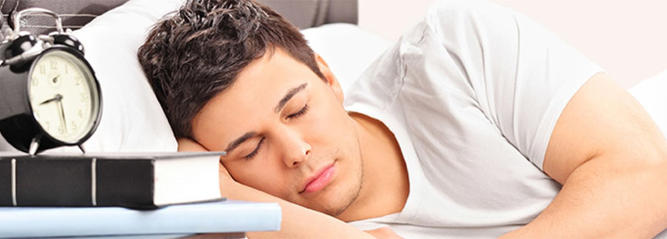Tips for improving sleep
Limit alcohol consumption
Alcohol interrupts the circadian rhythm, can suppress the REM stage of sleep, which is the stage where memories are consolidated, and decreases overall sleep quality.7 Alcohol is also a diuretic, leading to frequent toilet trips, again decreasing sleep quality.
- Avoid alcohol a few hours before bed.
- Aim to reduce alcohol consumption.
- The government guidelines recommend limiting to 14 units of alcohol spread over 3 or more days of the week.8
Create an optimal environment
How to create an environment which is conducive to a good night’s sleep.
- Temperature: 16-18°C is thought to be optimal.9
- Choose a heavy or light duvet depending on the season.
- Set your heating on a timer or leave a window slightly open to help maintain optimal temperature.
- Reduce noise: Try earplugs to block out any background noise.
- Light: Try a sleep mask or blackout curtains to make the room darker.
- Comfort: Invest in a quality mattress and pillows or mattress topper.
Exercise
Exercise is important for health and well-being. Many studies have shown that exercise improves sleep quality. People who exercise regularly report better sleep quality than those who don’t exercise.10
- Exercise increases heart rate and body temperature which promotes the release of adrenaline and endorphins. This helps to relieve stress and anxiety, keep us alert and productive, and make us happier.
- As exercise uses energy, it increases your body’s desire to sleep at night, helping you fall asleep easier at night.
Some tips to exercise in a way that helps you sleep include:
- Try to keep high-intensity activity to daytime or early evening, and ensure your workout finishes at least an hour before you go to bed. This is because the increase in heart rate, body temperature and adrenaline before bed can worsen sleep.
- If exercising close to bedtime, try a calming activity such as yoga.
Food and drink
Certain food and drink, when eaten before bed, can hinder sleep.
- Spicy, high fat meals before bed can cause indigestion and acid reflux.
- Diuretic foods (such as watermelon and celery) and drinks (for example, dandelion tea, alcohol, coffee) can cause frequent toilet trips which disrupts sleep.
- Caffeine is a natural stimulant. It takes approximately 6 hours for half the caffeine consumed to be removed from the body. Try avoiding caffeinated products (eg: coffee, chocolate, energy drinks) after midday.
A light snack, rich in sleep promoting nutrients is recommended if hungry before bed, for example:
- A bowl of low-sugar cereal and milk.
- Cheese and oatcakes.
- Peanut butter on wholemeal toast.
Reduce stimuli
Modern technology such as phones, computers and TVs release ‘blue light’ which affects the circadian rhythm by suppressing melatonin production.
- Remove TVs and phones from the bedroom to create a relaxing environment.
- Limit use of these devices two hours before bed.
- Reduce blue light by using the ‘blue light filter’ on devices or invest in a pair of ‘blue light’ glasses to wear 2 hours before bedtime.
Routine
A bedtime schedule, and choosing a similar time to go to bed each night and to wake up each morning2, can regulate circadian rhythm promoting a quality sleep.
Engage in a relaxing routine to help prepare for sleep:
- A relaxing bath with Epsom salts (these are rich in magnesium).
- Lavender scented candles/oils have calming effects.
- Listen to soothing music or read a book.
- Meditation supports stress reduction12. Apps such as ‘Headspace’, ‘Calm’, ‘Buddhify’ can be a useful guide.
- A warm camomile tea or milky drink.
Shift workers
Irregular schedules, altered lighting and sleeping out of sync with people around interferes with the body’s circadian rhythm.
- Request a block of shifts to establish some routine.
- Prepare for a night shift by rising 2 hours later and going to bed 2 hours later. Most people cope with 2-3 hour shifts in their sleep-wake cycle.
- Eat meals at the same time each day to promote regular body cycles.
- Napping before a shift can reduce sleepiness at work.
- Limit stimulants such as caffeine to the first half of a shift to minimise the effect on sleep after work.
- Seek out bright light during the early part of a night shift to help stay alert.
Sleep tight!
